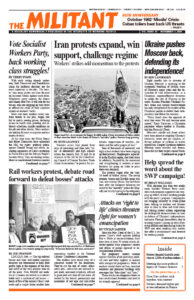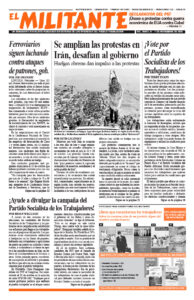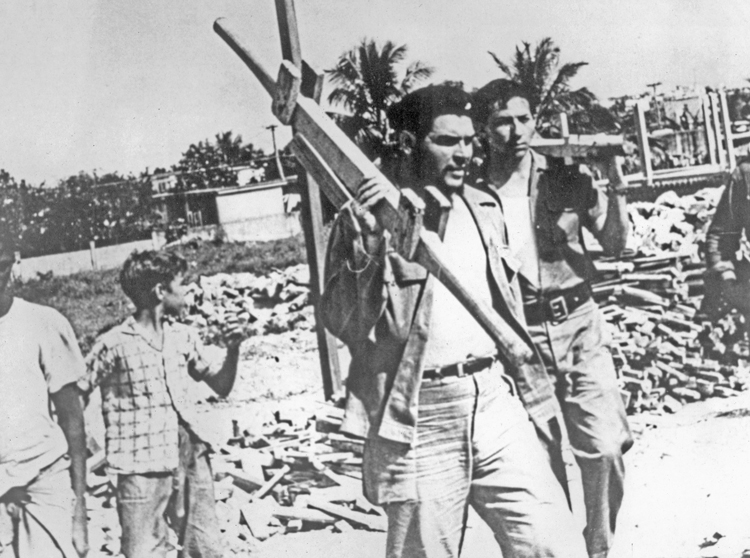The French edition of Are They Rich Because They’re Smart? Class, Privilege, and Learning Under Capitalism by Jack Barnes, national secretary of the Socialist Workers Party, is one of Pathfinder’s Books of the Month for November. It explains how class inequalities are sharpening today amid the deepening global capitalist crisis. Below is an excerpt from the chapter “Capitalism, the Working Class, and the Transformation of Learning.” Copyright © 2016 by Pathfinder Press. Reprinted by permission.
These are class questions, not questions of an individual’s level of schooling. The purpose of education in class society is not to educate. The purpose of education is to give “the educated” a stake in thinking they are going to be different — better off, more “white collar” — than other people who work all their lives. In the process, the rulers hope to make those who manage to get a college degree more dependable supporters of the status quo. They want you to be comfortable supervising, “orienting,” and testing workers — directly and indirectly. They want to be able to count on you as a stable supporter of the capitalist system. It is not education; it is confusion and corruption.
Entire social layers — lawyers and other so-called professionals — receive very high incomes just because they can hang a piece of paper on the wall, a piece of paper kept scarce by the action of the state. Due to the corner they hold on these functions in the class structure and pecking order of capitalist society, these professional and other middle layers collect a “rent,” a payoff, from the bourgeoisie. They live off a portion of the fruits of the exploitation of workers, working farmers, and other toiling producers.
That’s another function of education under capitalism. It gives certain privileged social layers a license to a higher income — a license to a slice of the surplus value workers create through our labor. The surplus value we create is much greater than the wages capitalists pay us. In addition to the shares of surplus value the owners of industrial, banking, commercial, and land-owning capital divvy up among themselves (through competition) in the form of profits, interest, and rent, they also pay out part of this wealth to these layers of professionals, managers, and supervisory personnel.
In the big majority of cases, these individuals contribute nothing to production. But they do help the propertied ruling families maintain and reproduce the class relations, privilege, and domination necessary for bourgeois rule.
So the relationship between education and income in capitalist society has nothing to do with college graduates knowing more, let alone making a greater contribution to human welfare or creativity (or necessarily even a greater direct contribution to capitalist wealth, for that matter). Instead, it is a small price the propertied rulers pay for a middle class that helps them maintain social stability, hold off working-class demands, and rationalize the polarizing social consequences of the relations of production under capitalism. …
Until society is reorganized so that education is a human activity from the time we are very young until the time we die, there will be no education worthy of working, creating humanity. There will only be the pretensions to education or to technical expertise of a small group of people. That is the historical truth. …
Work should be the way Che Guevara talked and wrote about it during the early years of the Cuban Revolution — and what Fidel Castro and Che helped mobilize and lead as revolutionary organizers of that working-class government and communist party. Factories and other workplaces should be organized to promote continual requalification and ongoing education. In order to do that, “work must acquire a new status,” Che wrote in 1965 in Socialism and Man in Cuba.
Along that road, Che said, a worker “starts to see himself reflected in his work and to understand his full stature as a human being through the object created, through the work accomplished. Work no longer entails surrendering a part of his being in the form of labor power sold, which no longer belongs to him. …
“We are doing everything possible to give work this new status of social duty,” he wrote, “and to link it on the one side with the development of technology, which will create the conditions for greater freedom, and on the other side with voluntary work based on the Marxist appreciation that man truly reaches his full human condition when he produces without being compelled by physical necessity to sell himself as a commodity.” …
There is no universal education under capitalism; there is no such thing as education “for all.” There is only “education” for the working class, and a completely different kind of “education” for the small propertied minority.
If we do not explain education under capitalism as a class question … if we do not present working-class schooling as the social destruction of human solidarity, as the organization of a society based on class differentiation, where human beings late in their teens become units of production in the minds of personnel managers and social planners; if we do not point to the fundamental issue of truly universal, lifetime learning — if we cannot explain education this way, then we cannot explain it at all.
But understood and explained correctly, there is no more important question for communists. Learning as a lifetime experience — I cannot think of a better reason to make a socialist revolution. What better reason to get rid of the capitalist state and use the workers state to begin transforming humanity, to begin building human solidarity? And we have the living example of the Cuban Revolution to show how it’s possible to start down that road. …
Explaining the communist approach to learning is part of preparing the working class for the greatest of all battles in the years ahead — the battle to throw off the self-image the rulers teach us, and to recognize that we are capable of taking power and organizing society, as we collectively educate ourselves and learn the exploiters in the process.


